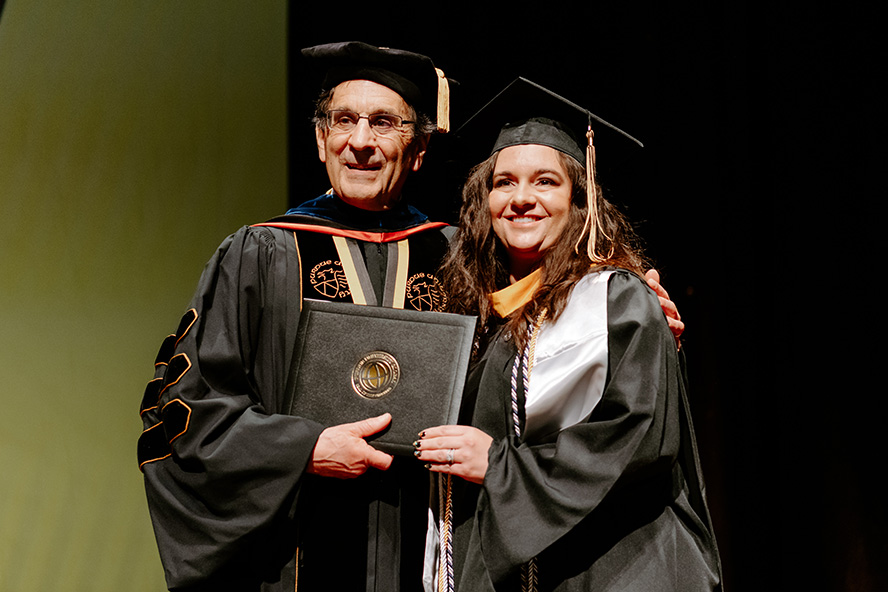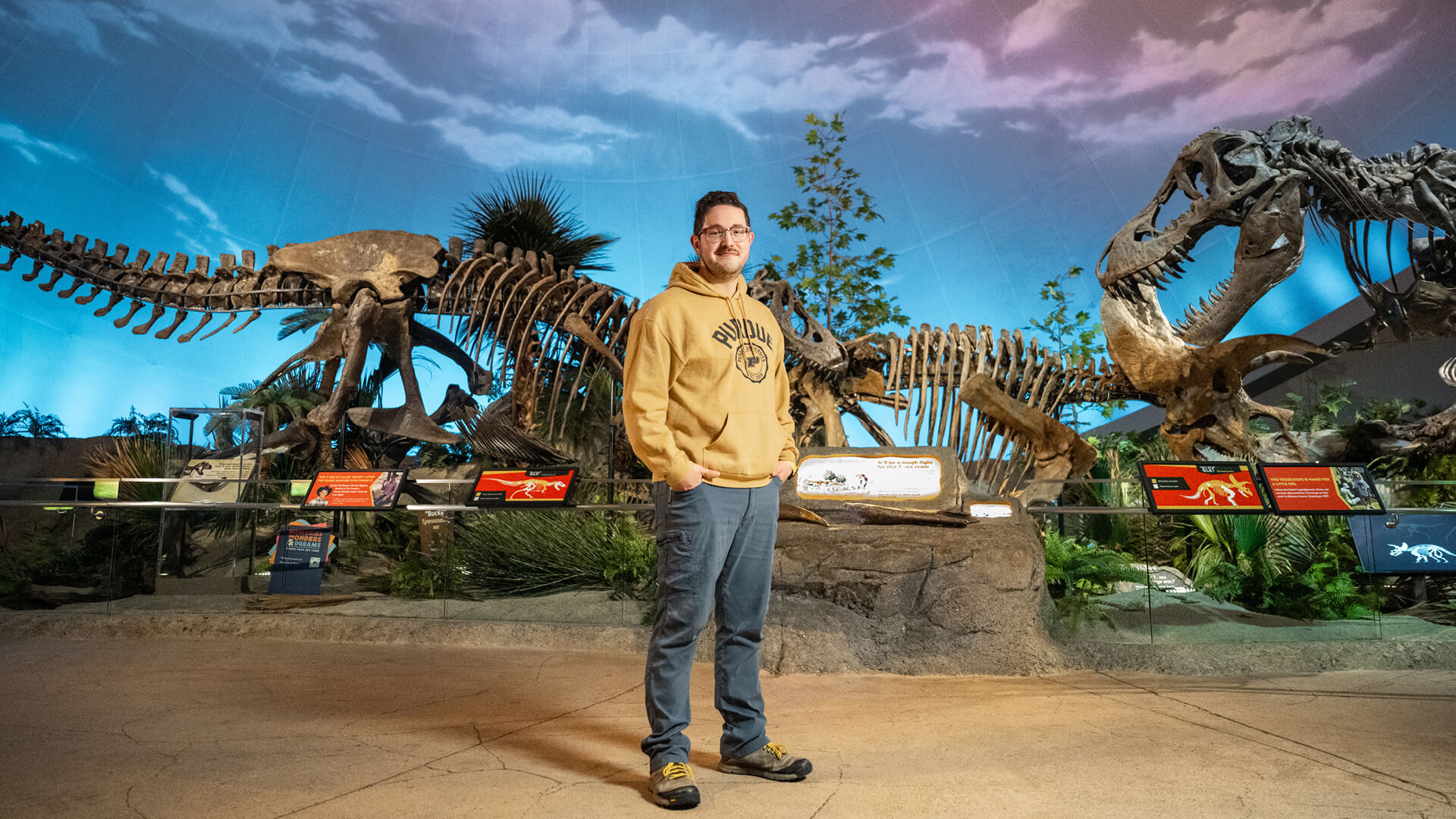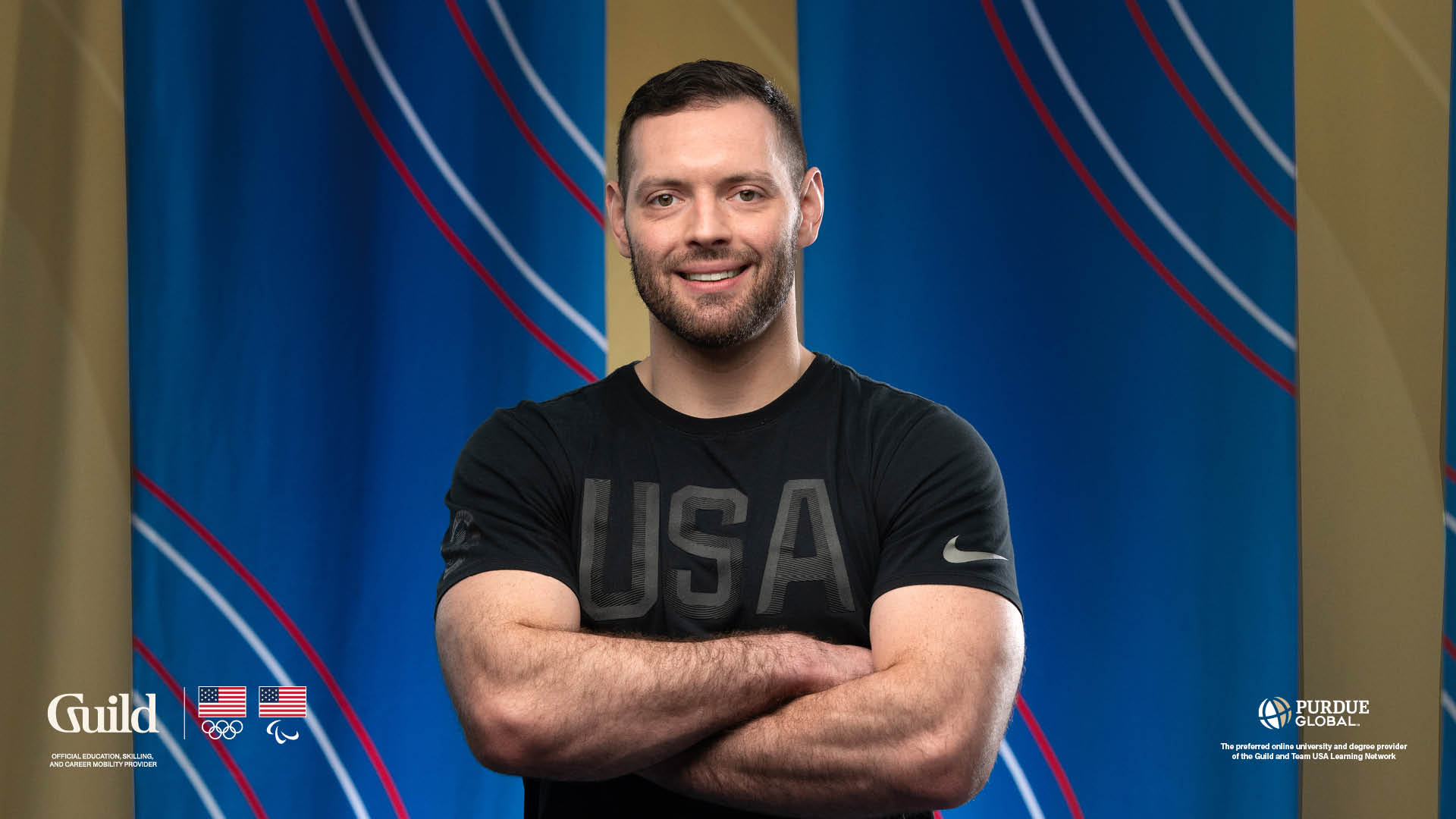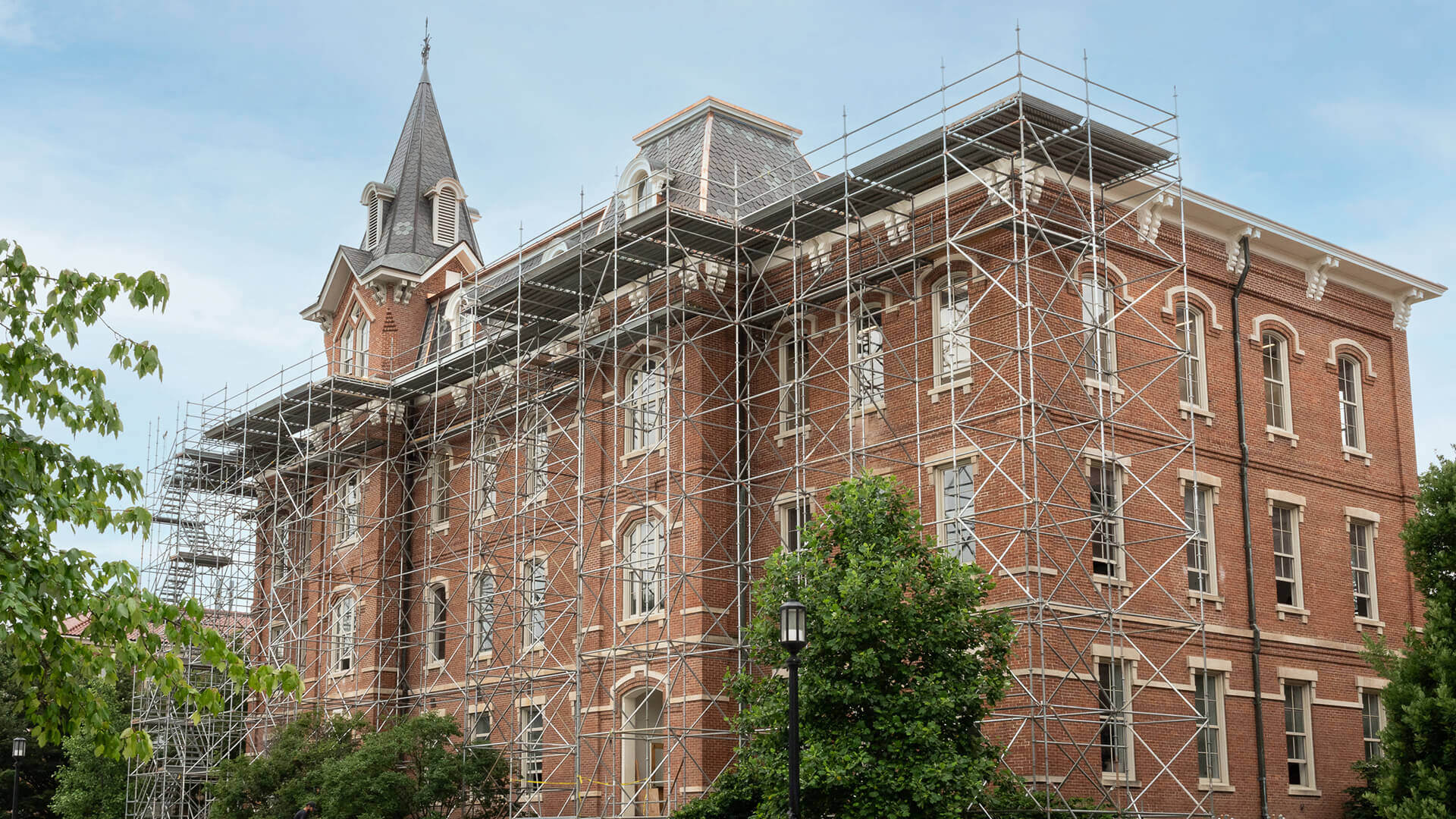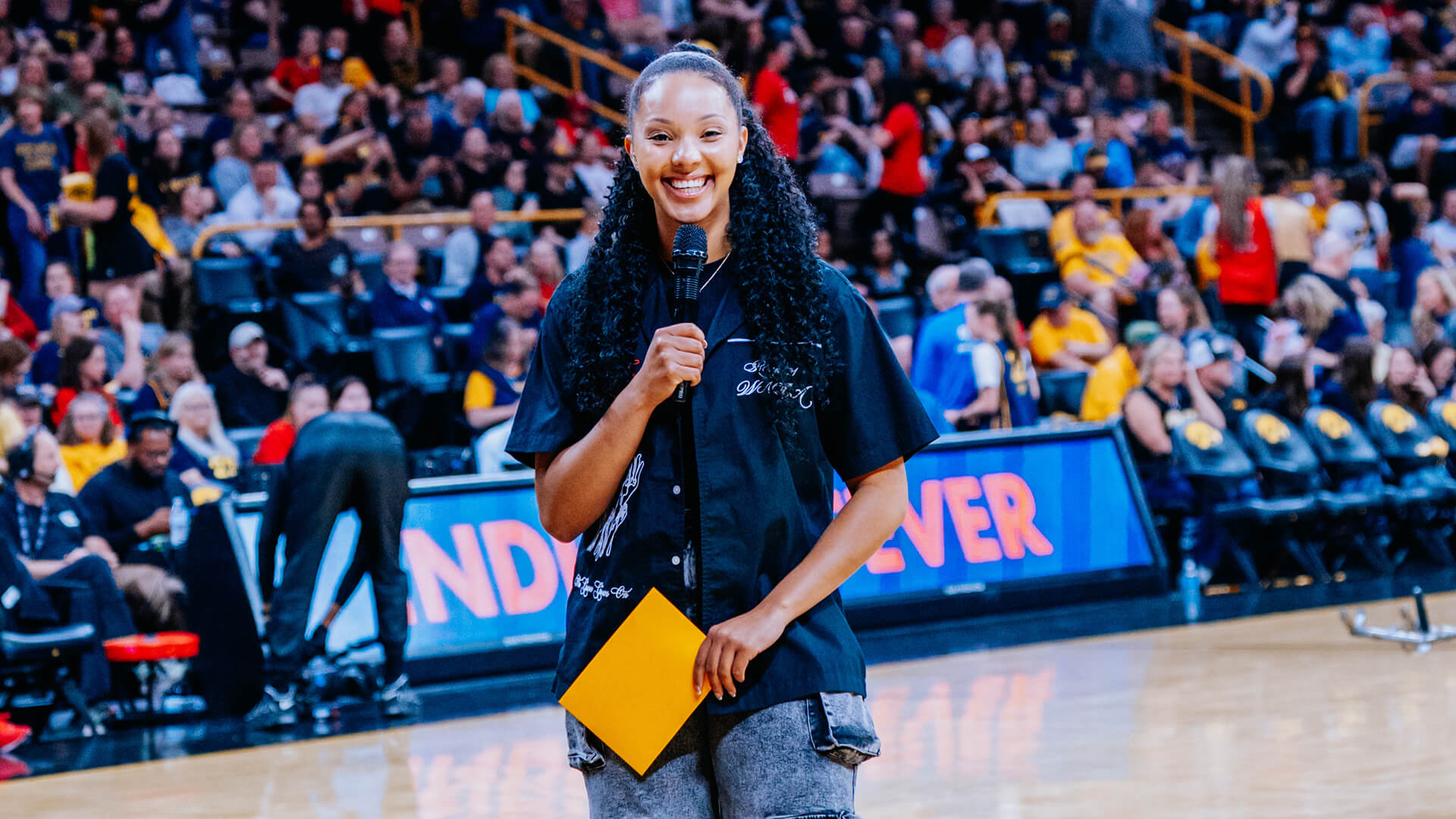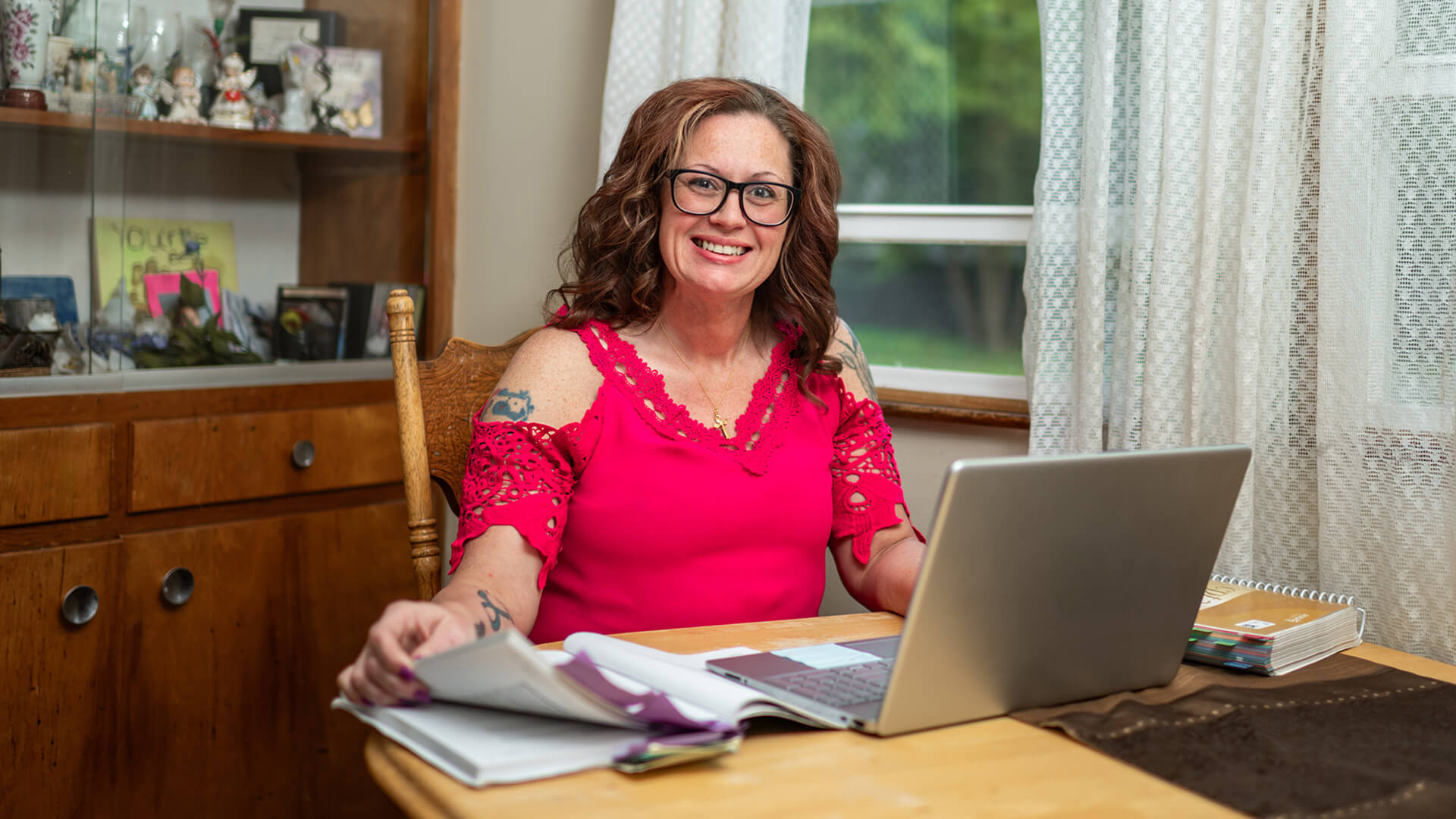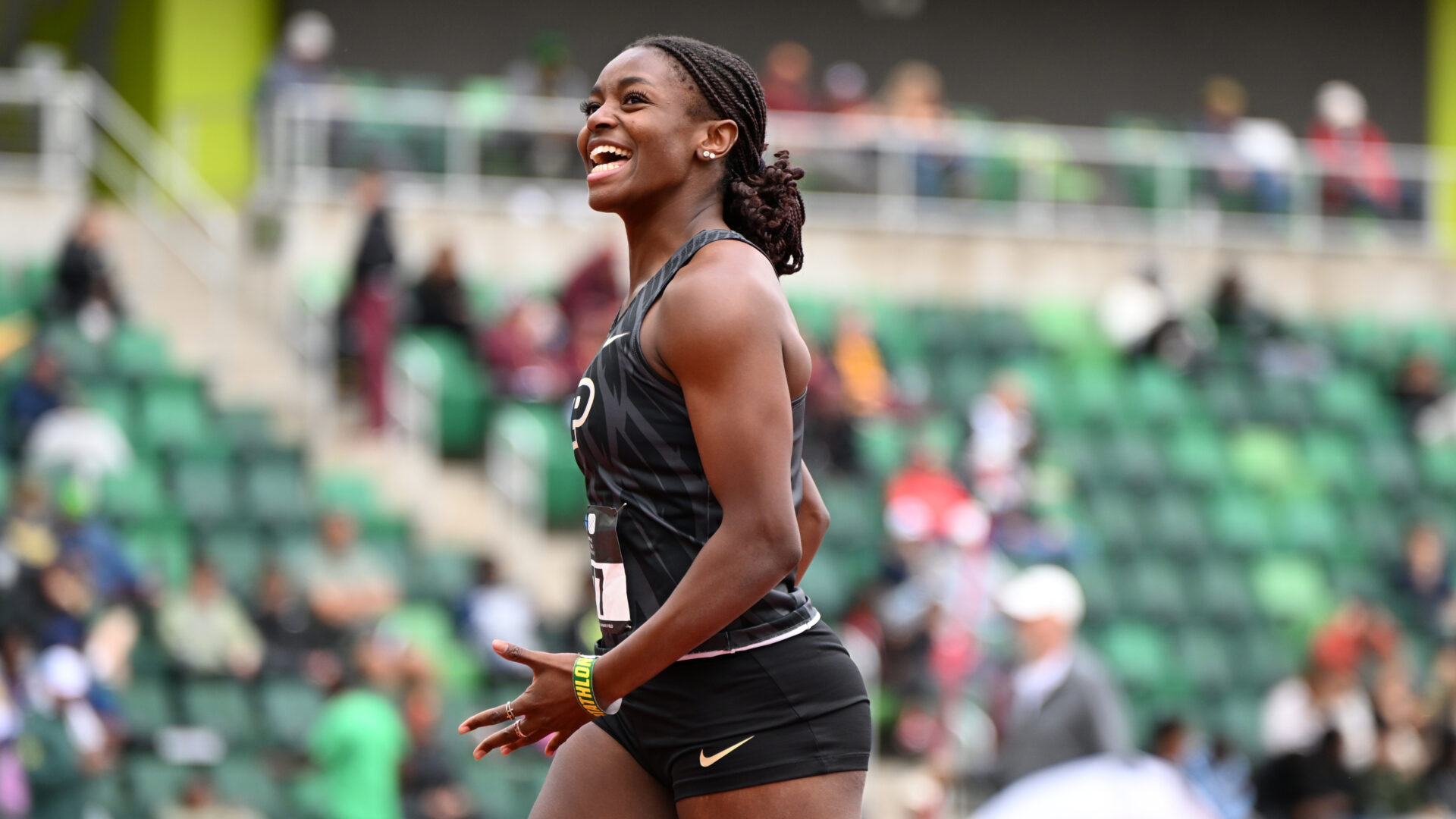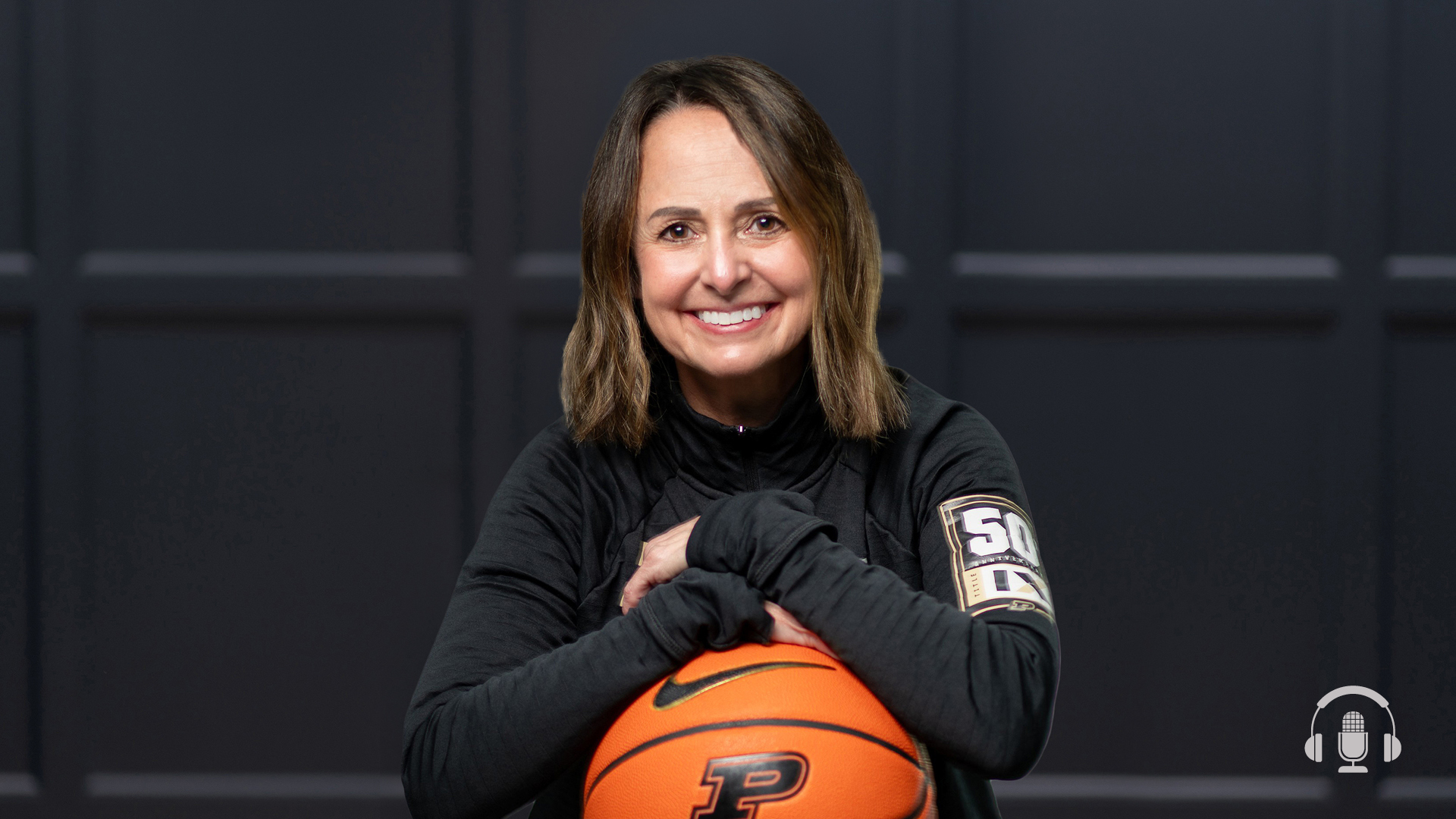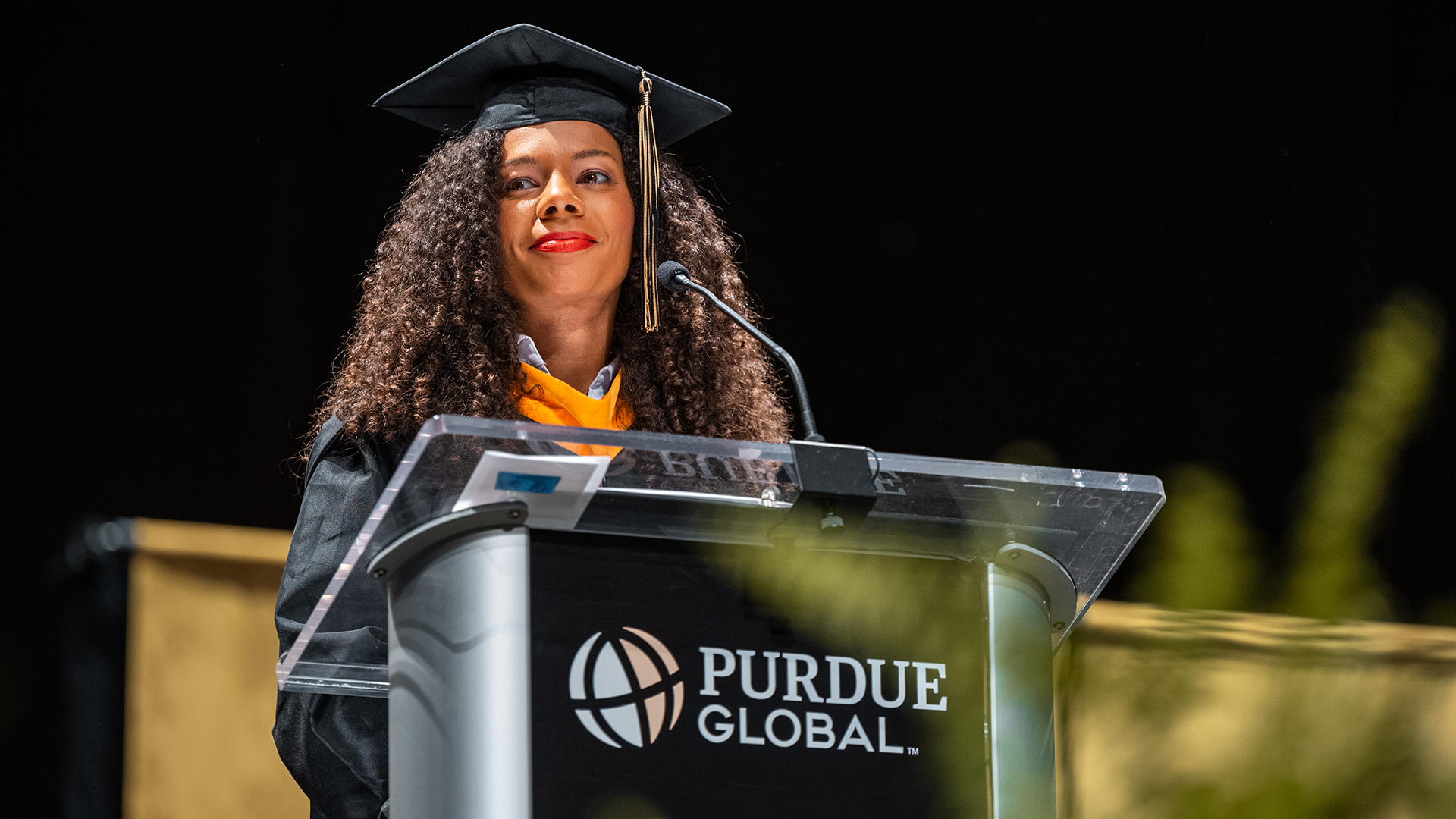‘Purdue Global moved me forward’
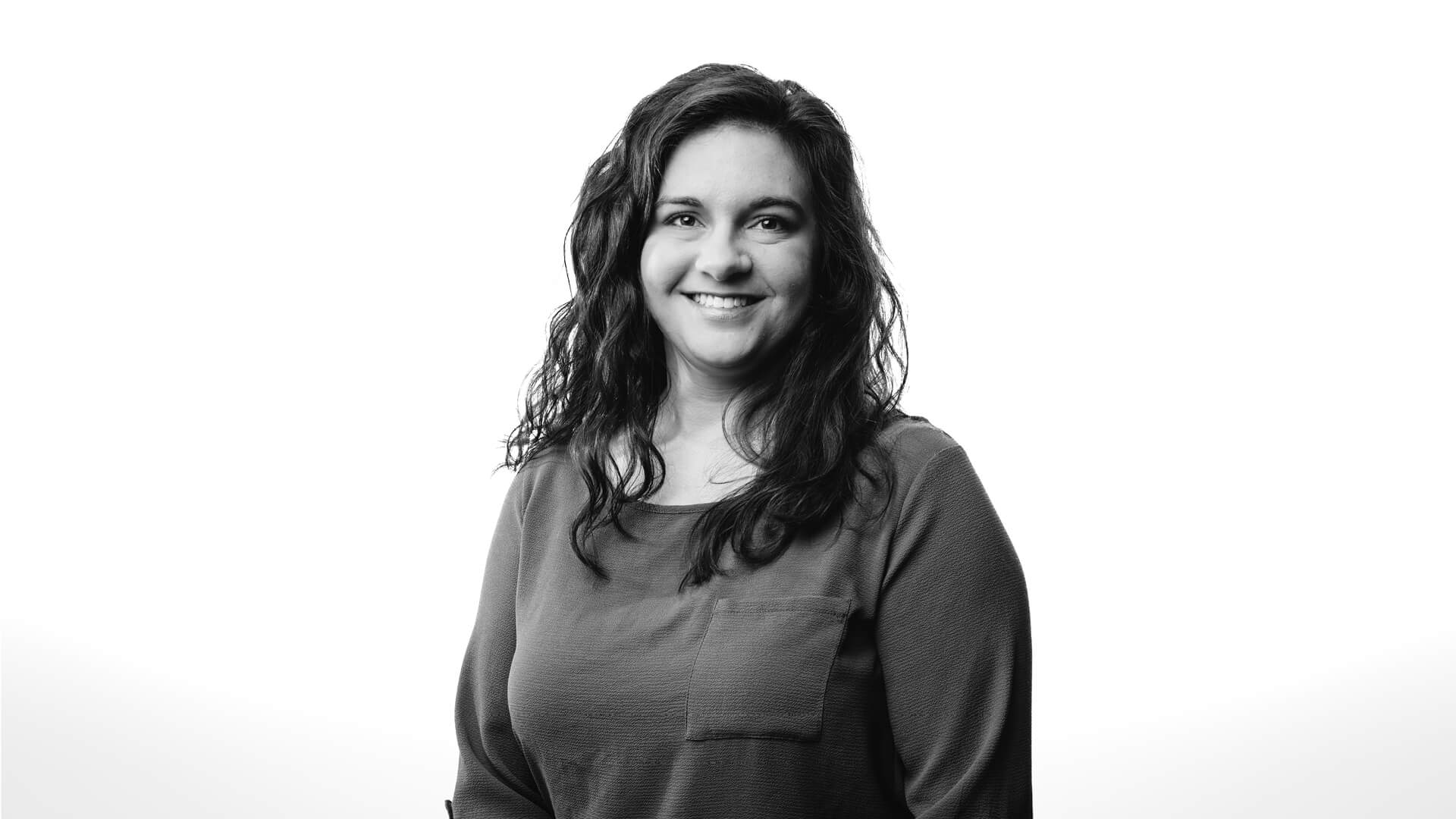
Lauren Castrinos Bradford earned her MS in Psychology with an Applied Behavior Analysis (ABA) concentration. Today, she helps design behavior programs for children with autism via Telehealth. (Purdue University photo/Kelsey Lefever)
This isn’t the life psychology grad Lauren Castrinos Bradford imagined. It’s even better.
In their early 20s, Lauren Castrinos Bradford (MS psychology ’20, Purdue Global) and her husband, Keegan, were dreaming about a life together. Their vision was so clear, they felt like they could touch it — everything from the two children they wanted to have, to the house and the yard, all the way down to the Chevy Tahoe in the driveway of their Anderson, South Carolina, home.
Now they can touch it, thanks to her degree from Purdue Global. The dreams they had are real, physical parts of their life. But the way everything came together was nothing like what they had pictured. It was harder. Scarier. Slower. And filled with more love and triumph than they could have ever imagined.
A life according to plan
At the end of high school, Lauren didn’t have a clear vision of what she wanted to do, but cosmetology school sounded more intriguing than continuing in the traditional academic setting of college.
Her dad, however, was adamant that she attain a four-year degree in something.
“He said if I’m going to do cosmetology school, I’d have to get a four-year degree in something else, too,” she says. She agreed — a year of cosmetology, then a degree in psychology from Clemson.
Shortly after graduation, she married Keegan, and they began building their life together. While they saved for a house, they started out in an apartment that shared a parking lot with an applied behavior analysis (ABA) therapy center. After a while, Bradford started to think about how her background in psychology might connect to that kind of work.
“I knew I wanted to do something to help people, so I started looking into ABA,” she says. “I realized what it was and that you can make a really big difference in these kids’ and their families’ lives.”
She found her calling across the parking lot but realized there wasn’t much room to grow without a master’s degree. And after she served as an ABA therapist for three years, Lauren and Keegan were ready to buy their first home and start a family, so a master’s degree wasn’t a priority. Exactly according to plan, they closed on their house in January 2013, and their son Dexter was due in January 2014. When she returned from her six-week maternity leave, she planned to continue working as an ABA therapist.
But that’s where the plan went off the rails.
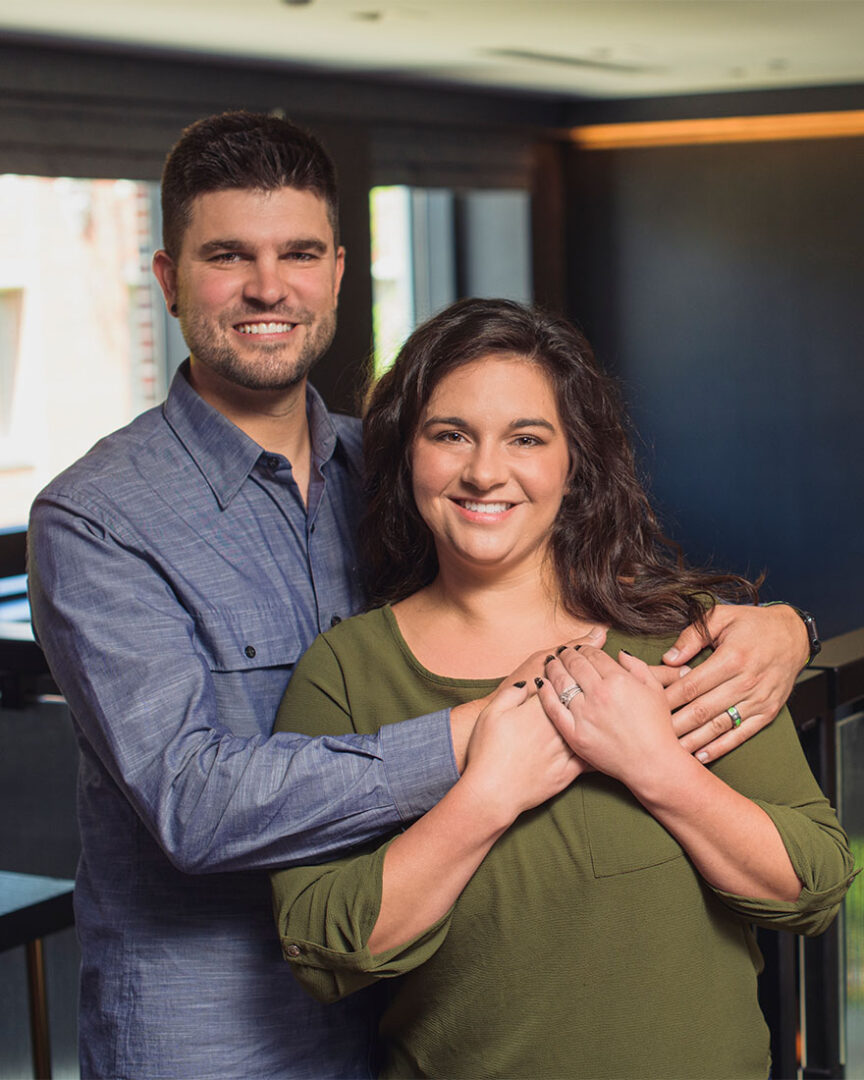
“You have to go right now.”
On Jan. 8, 2014, the day before her baby shower at work, Lauren went in for one of her weekly doctor appointments. Much to everyone’s surprise, her blood pressure was extremely high. The doctor attributed it to equipment malfunction and repeated the procedure manually.
“It ended up even higher than what it already was on the monitor,” she says. “The doctor said, ‘You are very sick. You need to go to the hospital right now.’”
Preeclampsia was the diagnosis – an emergency situation in which blood pressure skyrockets – and damage can occur in the mother’s liver and kidneys. At her stage in pregnancy, the solution was to induce labor and deliver the baby as soon as possible in order to save her life.
That was the first in a series of events that, by the end of the day, added up to a traumatic birth. Dexter suffered damage to his sixth and seventh cranial nerves, resulting in a facial paralysis and blindness in one eye. After a two-week NICU stay, the responsibility for treating Dexter’s affected eye with eye drops every 45 minutes fell to Lauren and Keegan.
It was an unusual situation for new parents to adjust to. And with no one to care for Dexter properly other than his parents, Lauren was unexpectedly thrown into the world of stay-at-home motherhood — because caring for Dexter wasn’t just about the frequent drops. It was the continual threat of danger to his vulnerable eye.
Three years later, the Bradfords added another little boy, Finley, to their family. By then, Lauren and Keegan were well acquainted with the life of parents to a child with chronic medical challenges. But it wasn’t until Dexter entered preschool that the Bradfords started to notice there was something more to discover about Dexter.
An autism diagnosis
Although she always knew that Dexter would have his own normal, some of his behaviors reminded Lauren of the kids she used to work with at the ABA clinic.
He wasn’t seeking out social activity, especially from other kids. He was fixated on patterns. He could hyperfocus on activities of particular interest far longer than most kids his age. He seemed to lack awareness of where his body was in space and the sensations it was experiencing. But even with all these differences, getting an autism diagnosis for Dexter wasn’t easy.
It took another year to get the official diagnosis.
Many parents might take the news hard, but Lauren didn’t. Quite the opposite, in fact.
Whether I succeeded or failed, (my boys) were watching.
Lauren Castrinos Bradford
MS Psychology ’20, Purdue Global
“I already knew this was coming. My husband did as well, because I’d been pointing out the behaviors to him,” she says. “But there are so many services and accommodations. You constantly fight for these things for your kids, especially if they appear typical. But until you have that diagnosis, it’s a fight with insurance, with doctors to get the support they need. So when we got that diagnosis, it was actually a relief.
“My mom once asked me why I was so excited about an autism diagnosis. I said it’s because I don’t have to fight anymore.”
Acting as her own son’s therapist
With that relief came a revelation. Lauren realized: this was her moment.
Since she already knew and had professionally practiced the principles of ABA therapy, she had been applying much of it to parenting Dexter. And now it was time to utilize what she was already doing at home in a professional setting.
But earning a master’s degree wouldn’t be simple, especially with all of Dexter’s surgeries, therapies, appointments and everything else, plus the travel required. All she knew was that if she wanted to work, she’d need to be able to do it from home. And that would require a master’s.
That’s where Purdue Global came in.
“Being able to do grad school online with Purdue Global was huge,” she says. “I could not have done what I did without it. I did grad school sitting in an airport. I answered discussion posts in a hotel room in Baltimore, or I’d be in the hospital room while Keegan sat with Dexter, just typing away.”
Everything she learned in classes had an immediate impact at home. In one instance, being able to break a task into smaller steps helped her get Dexter through a bullying incident at school, which started when it came out that he was in second grade and couldn’t tie his shoes yet. She asked him if he wanted to learn how, and he said yes.
“I was like, ‘All right, man; we’re gonna break it down.’ We broke down shoe tying all the way down to ‘Make an x.’ We worked on making an x for days. And then, ‘All right, we’re going to make an x and go under the tunnel.’ It took us a while, but he can tie his shoes now. Just being able to watch those tiny little things, like watching him sit down and tie his shoes … it’s those things, watching him succeed at things he didn’t think he could do or that I knew would be harder for him — it’s awesome.”
I did grad school sitting in an airport. I answered discussion posts in a hotel room in Baltimore, or I’d be in (Dexter’s) hospital room … just typing away.
Lauren Castrinos Bradford MS Psychology ’20, Purdue Global
Grad school in the trenches of a pandemic
Balancing her family’s unique needs and young children along with grad school was tricky — but Bradford was determined, and like any experienced mom would, she made a schedule.
The routine became: 6 p.m. classes while Keegan takes care of dinner. Finish class, tag-team getting the kids to bed. Hunker down in Keegan’s home office and do coursework until at least 2 a.m., sometimes 4 a.m. Get two or three hours of sleep. Wake up, set the boys up with their virtual schooling, curl up on the bed in Dexter’s room, just out of view of her laptop’s camera, and try to get another hour in.
It was a lot to manage mentally, she says. But as much as she wanted to quit in those small moments, she knew her kids were watching, and she knew she had to see it through. “It was hard; it was frustrating sometimes. There was a lot going on. A lot of Starbucks. So much coffee! But we did it.”
Coming back and moving forward
Coming full circle, Lauren served as the commencement speaker at Purdue Global’s spring 2023 ceremonies.
She explained in that speech that going back to school was already going to be a lot of work, a lot of time and a lot of persistence, but the pandemic made her want to quit. She didn’t because, she said, “I knew a year later I would look back at whatever decision I made with either regret or pride. My boys were watching … whether I succeeded or failed, they were watching.”
But now, her life is so much bigger than what she pictured years ago, because of what her master’s degree provides.
Now, she’s a Board Certified Behavior Analyst (BCBA), who earned that credential on her first try. She can work with a small number of kids via telehealth, so she can get to know each individual family and tailor goals to fit their needs, and she can do it while she stays at home with her kids.
“We knew how we wanted to raise our family, how we wanted to live. We wanted to get up and go, travel and do things. Have some flexibility with income. And,” she adds with a chuckle, “I really wanted a Tahoe. I wanted a Tahoe so badly. Keegan told me, ‘When you make more in a year than what a Tahoe costs, we’ll get one.’ As shallow as it sounds, that was the one really tangible thing I knew I’d have at the end.”
Now that her degree and her clinical work are complete and she’s working as a BCBA for Total Care ABA, that Tahoe now sits in the driveway of the new home they’ve just purchased.
“We’re closer to the school than we were. There’s lots and lots of room for everybody to have all of their space. We’ll be able to have a huge yard for the boys to be able to play, and we’ll eventually have a pool. It’s in a nice neighborhood where they can walk and have friends over,” she says. “Having been able to go to grad school, this was why. This was the reason. We’re almost at that part where we always wanted to be. This is how we want to raise our kids.”
